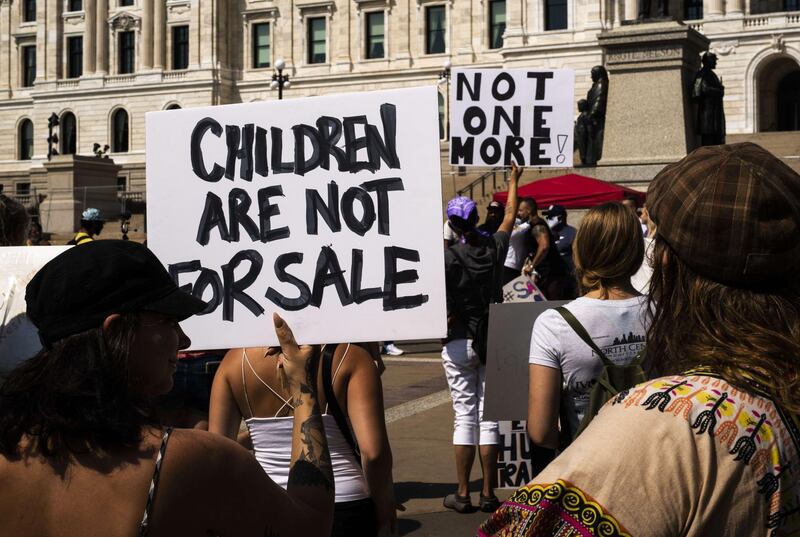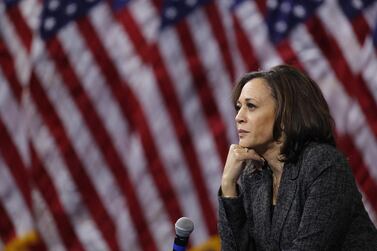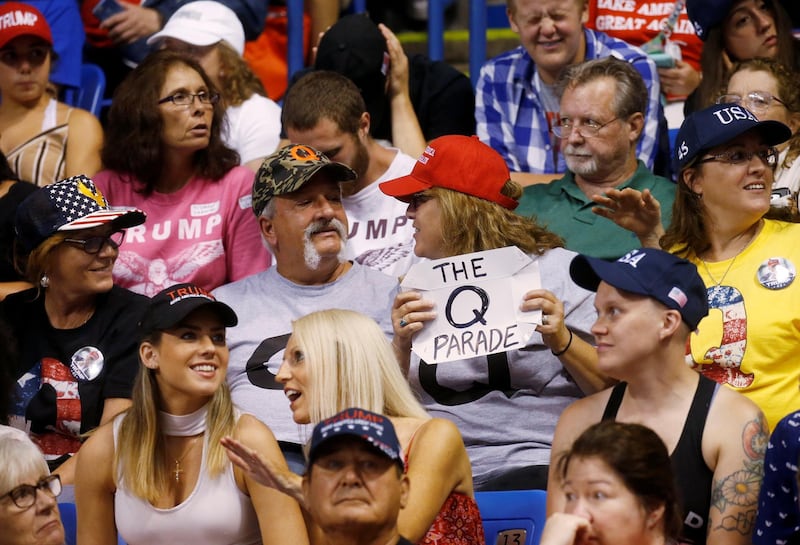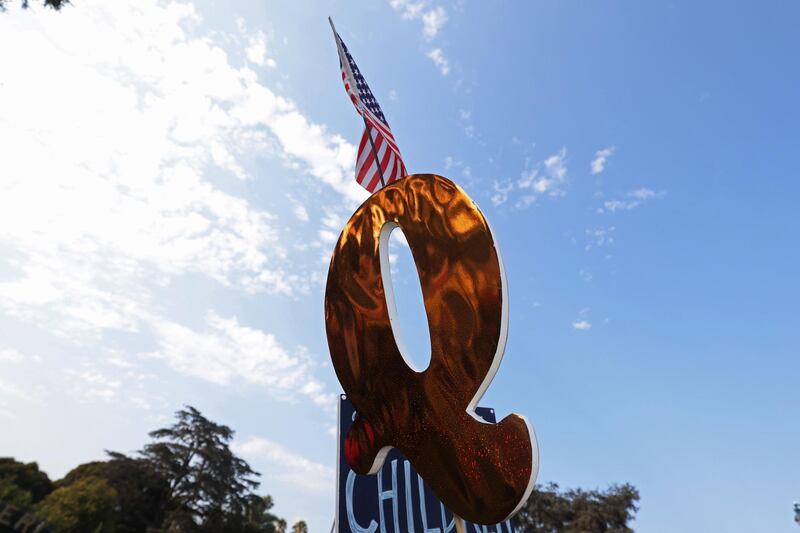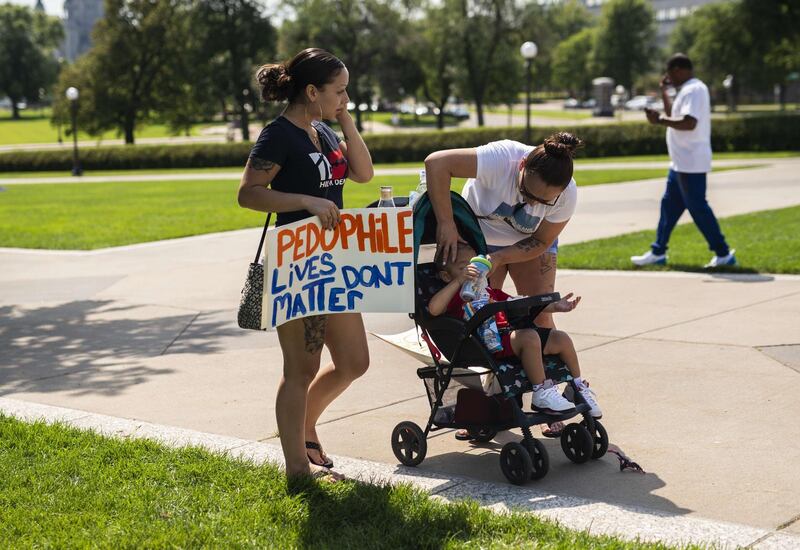Last week's virtual Democratic National Convention, in which former vice president Joe Biden was formally nominated to run against the incumbent Republican President Donald Trump, was carefully calibrated to refute the incessant Republican charge that the Democrats are a "radical left-wing" party with an extreme socialist agenda. Democrats adopted a strikingly moderate tone that could appeal to disaffected Republicans, and gave several of them speaking time.
Obviously, the Democrats have a growing left-wing faction. But the party's mainstream remains staunchly centrist. The same, unfortunately, cannot be said of the Republican Party under Mr Trump. Indeed, the GOP is in danger of heading down a rabbit hole of conspiratorial madness and angry racism.

For much of the 20th century, party affiliation did not automatically communicate ideological orientation. There were lots of conservative Democrats, especially from the South, and liberal Republicans from the Northeast and Midwest.
Although in recent decades ideological conformity has become the norm, until the Trump era there was still a strong tether across the parties to basic rationality. The centerpiece of the Democratic Party's electoral strategy is to show that, for them, that is still true.
But it is getting harder to say the same about Republicans, beginning with Donald Trump’s idiosyncratic conspiracy theories, fabrications, contempt for expertise and affinity for crackpots. Although many Republican leaders cited exactly these peculiarities in a vain effort to convince their voters not to back Mr Trump in the 2016 primaries, such thinking has now infected the party discourse deeply.
Having given paranoid fantasies and racist resentment the White House imprimatur, Mr Trump opened the door for, and is enthusiastically promoting, a raft of fresh Republican candidates who are spearheading a dramatically deteriorated level of conspiratorial mania and bigotry.
One racist agitator, Laura Loomer, who was elected as the Republican candidate for a seat representing Florida in Congress, earned no less than five congratulatory tweets from Mr Trump. She calls herself "a proud Islamophobe" and has been permanently banned from Twitter for relentless hate-speech. Fortunately, she has little chance of winning.
Not so for Marjorie Taylor Greene, who, again with Mr Trump's ardent support, will be running in Georgia for a safely Republican seat and is very likely headed to Congress next year. In addition to belligerently racist views, she is among 11 Republican congressional nominees this year who are adherents of one of the most widespread, bizarre and disturbing conspiracy theories in US history: QAnon.
QAnon, an entirely baseless, paranoid fantasy developed in internet forums, posits that many leading Democrats, Hollywood actors, government officials and other prominent citizens are devil worshippers who, in a highly organised international criminal conspiracy, engage in systematic paedophilia and even child cannibalism.
This twisted delusion posits that Mr Trump, in league with the former special counsel who investigated him, Robert Mueller, is planning to expose, crush and arrest this gigantic global cabal of ogres.
The narrative began as a series of anonymous posts on the online forum 4chan, and was a follow-up to the earlier “Pizzagate” delusion that emerged from the same website. The author, identified as "Q”, claims access to highest-level secrets. Why such a person would post cryptic messages about such information on the internet is, of course, never addressed, because simply to ask the question is to destroy the fantasy. “Q” posts have made countless predictions of momentous events, not one of which has ever come true despite the law of averages.
As with many conspiracies, demonstrable proof of its nonsensical nature is no obstacle to continued and expanding credibility among the gullible. In part, QAnon is popular because it is a particularly extreme version of what Columbia University professor Richard Hofstadter referred to in the 1960s as "the paranoid style in American politics". But, more importantly, it functions as a kind of game or "fan fiction". By engaging its audience to create imaginative and creative interpretations of the "clues" dropped by "Q", the great bulk of the narrative gets drawn collaboratively by the adherents themselves. It's a grand mystery where you, too, get to play detective. What fun!
The problem is, it purports to be about real people, life, politics and society, and therefore has very real consequences. QAnon is qualitatively different from previous widespread American conspiracy theories – such as the idea that American leaders like President Dwight Eisenhower were knowing agents of the Soviet Union – because it doesn't merely take a paranoid view of existing reality but rather posits a completely fictional, alternative one.
It is extremely destructive because it promotes so much hatred and even violence. The FBI has recently identified QAnon as a threatening source of domestic terrorism because of a series of violent incidents connected to QAnon and its Pizzagate predecessor.
Mr Trump, though, apparently cannot help being delighted, because in this gruesome delusion, he is the hero.
When asked about it recently he used his usual elliptical style to claim he didn't know much about the belief system but appreciates that its followers like him. When told that the theory holds he is waging a war against Satanic paedophiles and cannibals, he responded, "Is that supposed to be a bad thing? If I can help save the world from problems, I'm willing to do it."
Wink, wink.
Not only did the president say nothing to challenge or criticise this lunacy, he all but endorsed its most twisted claims.
But why not? He rose to political prominence as a champion of the ridiculous “birther” conspiracy theory that then-President Barack Obama was secretly born in Kenya and hence ineligible.
Mr Trump is stuck with conspiratorial theorising. And the Republican Party is stuck with him. So, Americans get Ms Loomer, Ms Greene and a whole raft of other racist and conspiratorial candidates – or at least, candidates who cynically play to that thinking. It's clearly a significant trend.
House Republican leaders say that if Ms Greene wins, as expected, she will be welcomed as a normal member with committee assignments and all other prerogatives. No problem.
Joe Biden and the other Democratic leaders are certainly liberals. But they are hardly "radical left-wing socialists". Sadly, with Mr Trump as their unchallenged leader welcoming Ms Greene as "a future Republican star", radical and extreme seem insufficient to describe where the GOP could be heading.
Hussein Ibish is a senior resident scholar at the Arab Gulf States Institute in Washington
